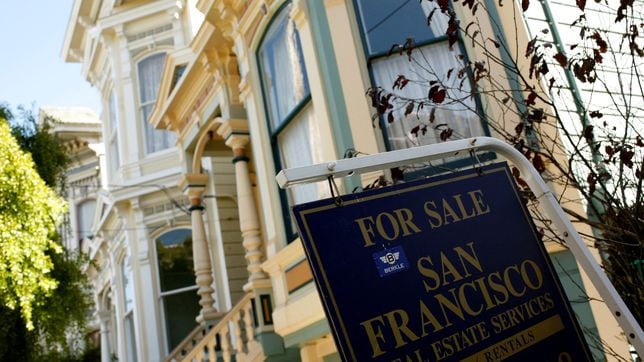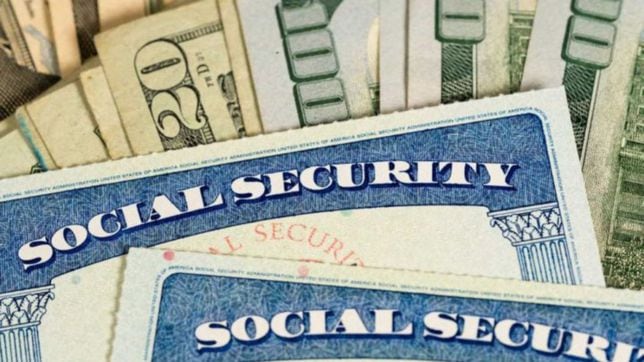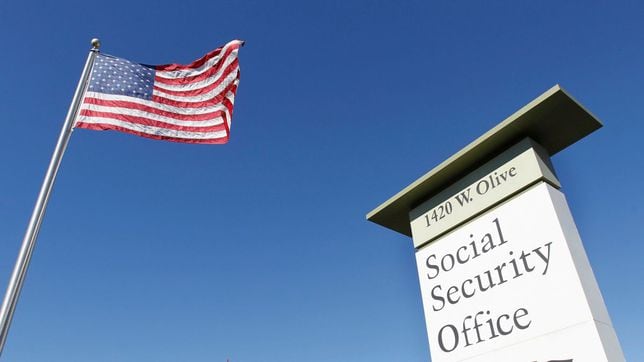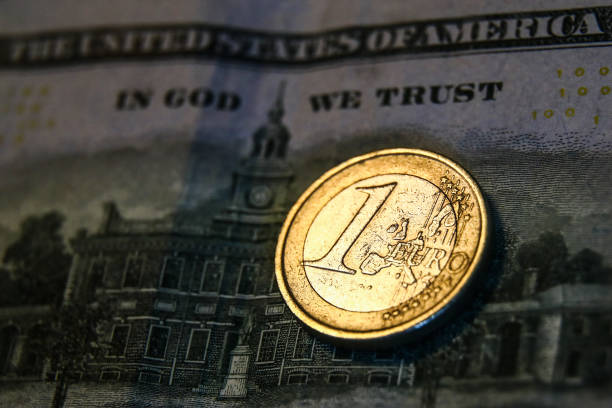USA finance and economy: Social Security checks, taxes, IRS, bitcoin, interest rates... | 21 July
High inflation is stoking expectations of an outsized rate hike when Fed meets next week. Here’s the latest finance and economic news on that and more.

Show key events only
USA finance and economy live updates 21 July 2022
Headlines | 21 July 2022
- Mortgage rates up over recession fears
- ECB announces half a percentage point interest rate hike Thursday
- Tesla reports lower profits in Q2, down 31%, but tops expectations
- Elon Musk says EV maker sold almost $1bn in Bitcoin holdings to prop up company's liquidity
- Bitcoin price up 10% since last month, tops $23,000 before retreating
- Biden not thought to have reached any agreement on oil production in Saudi trip
- Alaskans to get $3,200 energy dividend
- As unionization picks up in the US, Starbucks closes sixteen locations
Helpful information and links
- Social Security: How will inflation impact this year's COLA?
- Inflation: How does it effect crypto and the stock market?
- Social Security: Does it count as income?
Long read: Today's Child Tax Credit vs the Family Security Act 2.0
If you've got 10 minutes or so, this is an interesting look at one of the options for a replacement of the Child Tax Credit, by Scott Santens over at Humanity Forward.
The enhanced child tax credit, "whose monthly cash payments of $250 to $300 per kid cut child poverty by a third, did not reduce employment, did not contribute to inflation, but did increase entrepreneurship, and did decrease drug use, and did decrease the number of parents selling their plasma to feed their kids", seems unlikely to be restored. But it seems something that works so well, you know, should be. Is the Family Security Act 2.0 a possibility.
Mortgage rates up over recession fears
30-year fixed-rate mortgages were at 5.54% in the week ending July 21, up from 5.51% the previous week, and a massive jump from 2.78% this time last year. Recession fears are pushing the rate up, with weakening economic outlook and high inflation, although volatility is still in the mix, having seen a big drop at the start of July.
The basic problem in the housing market right now is affordability, according to calculations from Freddie Mac, a buyer who put down 20% on a $390,000 jom and financed the rest over 30 years would have been paying $1,279 a month if mortgaging last year and a whopping $1,779 this year at 5.54%. You probably don't need a calculator to work out that's $500 more a month.
Tesla sold its bitcoin, is that a good idea right now?
Paul R. La Monica, over at CNN Business, asks the question: "Tesla dumped a big chunk of its bitcoin holdings. Should you?"
As you've probably read by now, Tesla owner Elon Musk is keen on cryptocurrency and back in February 2001 the company went long, buying $1.5bn bitcoin, and saying it would accept payments in the digital, non-government banked currency.
But in Q2 this year Tesla reversed its stance, selling off nearly $1bn in the second quarter according to filings, equivalent to 75% of its holdings.
Musk has discussed the sell-off saying it was to maximise cash with uncertainty over covid lockdowns in China, and saying, "we are certainly open to increasing our bitcoin holdings in future, so this should not be taken as some verdict on bitcoin."
La Monica quotes senior market analyst for the Americas at OANDA, a foreign exchange trading company, Edward Moya, who basically says that while Tesla dumping lots of bitcoin is unsettling, and helped end a rally in the currency, the price of bitcoin depends on a lot more than Musk's actions. He doesn't explicitly say it, but it sounds like the advice is, whatever you were thinking and planning before with your crypto investments, don't let this move change your plans.
That's backed up by Chris Kline, who wrote to CNN Business: "Macro factors are having a bigger role in bitcoin's price, such as Fed rate hike decisions and inflation. Larger institutions moving into the arena are affecting the price action of bitcoin, which is why this current crypto winter is different from previous ones. Major institutions have adopted crypto in some form and it's playing a factor in the volatility we've seen recently."
The Child Tax Credit in 2022 will return to the conditions offered by the IRS before the American Rescue Plan expanded it. The amount of the credit is smaller, and eligibility is more restricted than last year under the rules which were established through the 2017 Tax Cuts and Jobs Act (TCJA).
These changes will be in effect through the 2025 fiscal year, if no action is taken by Congress to modify the credit before then.
European Central Bank implements larger than expected interest rate hike
For months it had been expected that the European Central Bank would start raising interest rates for the first time in eleven years. The general thinking was that the policy makers for the eurozone would start off slow like the US Federal Reserve.
However, last week the common market regisitered 8.6 percent inflation in June, half a percent higher than the annual reading the month before. Spiking energy prices due to the Russian invasion of Ukraine have been a central driver, along with lingering supply chain disruptions caused by covid-19.
To tackle inflation, the ECB went for a half percentage rate hike instead of the quarter point bump that had been previously mooted.

Ford plans to cut 8,000 salary jobs, focus investment on electric vehicles
Just last month Ford announced that it would beinvesting $3.7 billion in facilities across the Midwest with an eye on ramping up its electric vehicle manufacturing capacity.
The car manufacturer plans to achieve annual EV production targets of 600,000 vehicles by 2023 and over 2 million by the end of 2026. The cash injection would also result in the creation of over 6,000 union jobs in the region.
Part of that shift to increased EV production though will result in 8,000 layoffs in other parts of the company according to Bloomberg News. The cuts are expected in the salaried workforce, including the Ford Blue unit created this spring to run the Ford's internal combustion engine operations. Details of the cuts haven't been finalized yet and could change.
As the Federal Reserve raises interest rates the dollar has surged against almost every other major global currency bringing with it both pros and cons.
Volatility continues to affect markets with inflation running hot globally and many other central banks are moving to stamp it out. The European Central Bank is expected to impose its first rate hike in over ten years Thursday.
Here's how it is playing out on currencies and the price of oil.
This administration believes every American deserves the option of an affordable EV and good charging infrastructure wherever they live and drive (along with great transit and active transportation of course).
We're hard at work delivering this, so every household can benefit.
Biden speaks to jobs climate action could bring
We’ve made real progress, but there is an enormous task ahead. We have to keep retaining and recruiting building trades and union electricians for jobs in wind, solar, hydrogen, nuclear, creating even more and better jobs.
We have to revitalize communities, especially those fence-line communities that are smothered by the legacy of pollution.
We have to outcompete China and in the world, and make these technologies here in the United States — not have to import them.
Folks, when I think about climate change — and I’ve been saying this for three years — I think jobs. Climate change, I think jobs. (Applause.)
Market optimism in gloomy times
General gloom about the prospects of the markets and economy has set in among Americans with high inflation and talk of a looming recession on the horizon. However, there may be light at the end of the tunnel with the worst of the selloff within sight. At least that is what Mark Zandi, chief economist of Moody's Analytics, opines.
Why is he optimistic? Although the stock market has lost 20 percent of its value plunging it into bear market territory and it is unlikely that the return will come with double-digit gains, he says that modest mid-single digits seem likely. The drop in market value was driven by investors anticipating higher interest rates to combat inflation, but now those rate hikes have been internalized.
There will still be market volatility with stocks going up and down, but should the Federal Reserve "simply raise interest rates as expected, and the economy is able to avoid an outright downturn, stock investors will stop selling, and the bear market will end."
Tesla reports lower earnings for second quarter of 2022 but beats expectations
Tesla released its second quarter earnings report on Wednesday. The company saw earnings down 31 percent from previous quarter but beat expectations. Additionally, earnings were up $5 billion over the same quarter last year and profits were more than double the Q2 2021.
Elon Musk announced that the electric vehicle maker sold nearly $1 billion in Bitcoin holdings in order to maximize the company's "cash position, given the uncertainty of the COVID lockdowns in China." The selloff represents 75 percent of Bitcoin assets held by the EV maker. Musk said the move should not be deemed some verdict on Bitcoin and that the company is "certainly open to increasing our Bitcoin holdings in future."
Social Security beneficiaries will be eagerly awaiting news of the cost-of-living adjustment (COLA) figure for 2023. Each year the Social Security Administration (SSA) introduces a nationwide boost to each recipient’s payment to account for the effects of inflation.
It is no secret that inflation is currently running very high and that COLA increase will be needed more than ever. The Consumer Price Index (CPI) report for last month found that inflation was running at 9.1% in June across the previous 12 months. This is the fastest rate of price increase since 1981.
The US Federal Reserve is expected to implement further interest rate hikes in a bid to get inflation under control by making borrowing money more expensive. With the highest interest rates since the 2008 financial crash, businesses are being incentivised to take less financial risk and save money. If this goes the way the Fed is planning, a recession is possible.
In terms of mortgages, inflation can be a good thing. It makes the initial price of the house become smaller as an individual dollar becomes worth less. However, changing interest rates seek to balance this discrepancy out. Here's how an interest rate hike could play out for mortgage borrowers...
Welcome to AS USA
Hello and welcome to our economic and finance live blog for Thursday 21 July.
Bitcoin has improved its market position in recent weeks, increasing more than ten percent during the last month and now hovering above $22,000. However, the crypto winter has not ceased and across the wider stock market, asset values are down, contributing to the belief by investors that the US economy is headed towards a recession.
Last week we also learned that inflation in June increased 1.3 percent, leading to a 9.1 percent year over year increase. Many of the goods that fueled these historic increases are energy resources which tend to impact the prices of other goods and services across the market.
As we move closer to the fall, Social Security recipients get a bit anxious about the 2023 COLA which many believe could reach as high as 9 percent. The COLA is determined by looking at the Consumer Price Index for July, August, and September.







